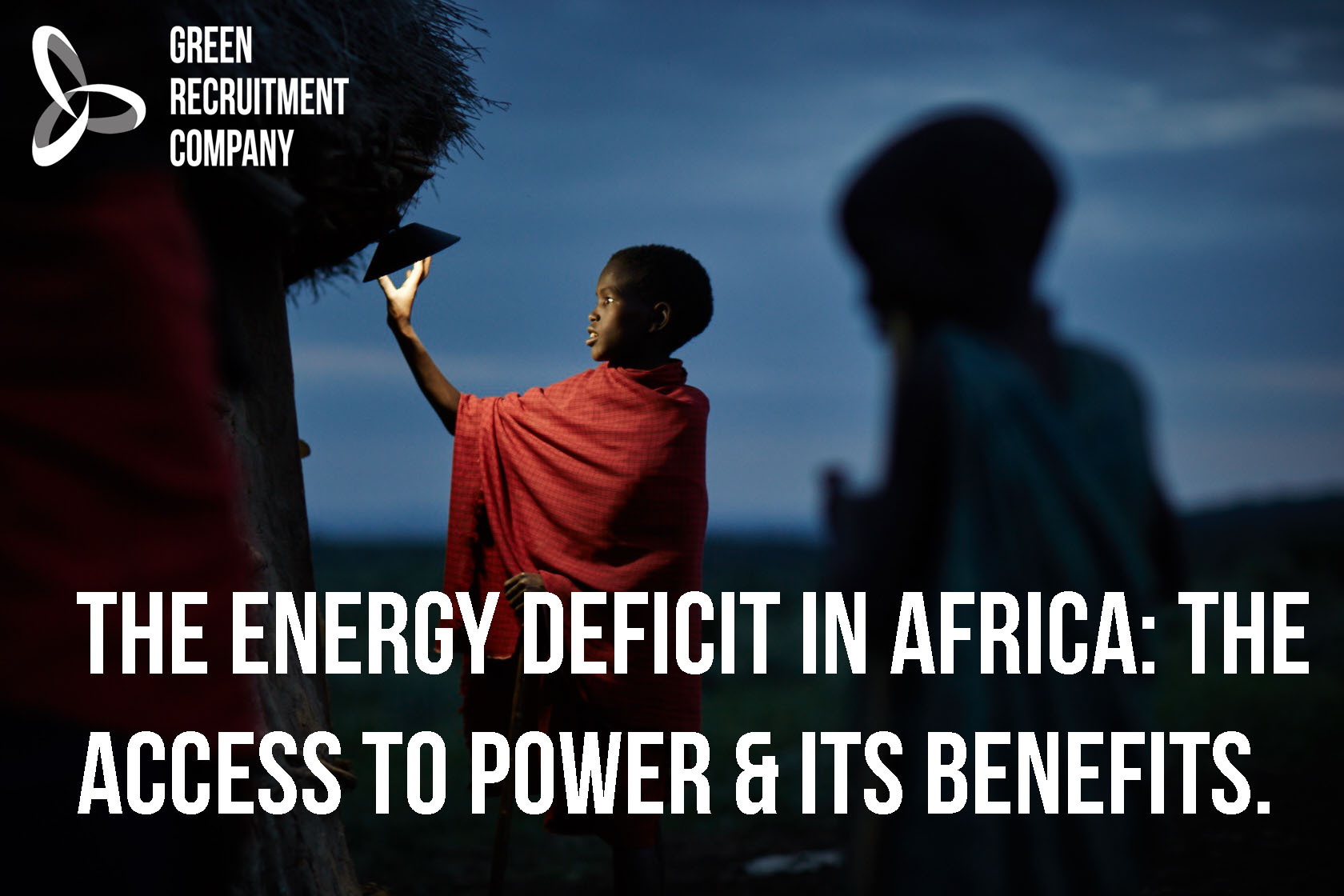
The Energy Deficit in Africa: The Access to Power and its benefits.
The Energy Deficit in Africa is clear for all to see, with 620 million people and two thirds of households without access to power. This figure will reduce by 50% in the next twenty years, and renewable energy is going to be at the forefront of this reduction. This will be through a combination of various technologies and both grid connected and off-grid sites. Naturally this makes the continent a hugely exciting prospect for both established international renewable developers, EPC’s, IPP’s, financiers and smaller start-ups looking to capitalise.
A key challenge with access to power in Africa is the lack of an efficient grid network outside of urban areas and the large populations living in hard to reach rural areas. This therefore means more conventional renewables such as grid connected Solar and Wind can only go so far in addressing the problem. Kofi Annan – Chair of the Africa Progress Panel – deems that “traditional approaches to extend the grid are no longer viable as the main option for African counties.” This makes advances in Off-grid/Hybrid/Microgrid of paramount importance.
Undoubtably there is a profit to be made in this market, but what are the wider social and economic benefits of this?
The energy deficit and the social-economic deficit are directly related, and whilst the latter’s benefits are harder to quantify it is widely agreed the benefits will occur. Providing power to rural communities will create a domino effect helping tackle the lack of commerce, schooling, healthcare etc, going some way to address critical issues such as 80% of primary schools being without power.
From a recruiter’s perspective the job market is blooming, and it is refreshing to see companies focusing on hiring work forces comprised of expats and nationals. Whether its established renewable players opening hybrid divisions, or start-ups looking to provide plug in power systems Africa is continent to be very excited about.
For more information about the African market, please contact Harry Gibson, Head of Renewables in MENA and Sub-Saharan Africa.
